No products in the cart.
We're so happy you stopped by.
Please let us know if you have any questions for us.

We're so happy you stopped by.
Please let us know if you have any questions for us.
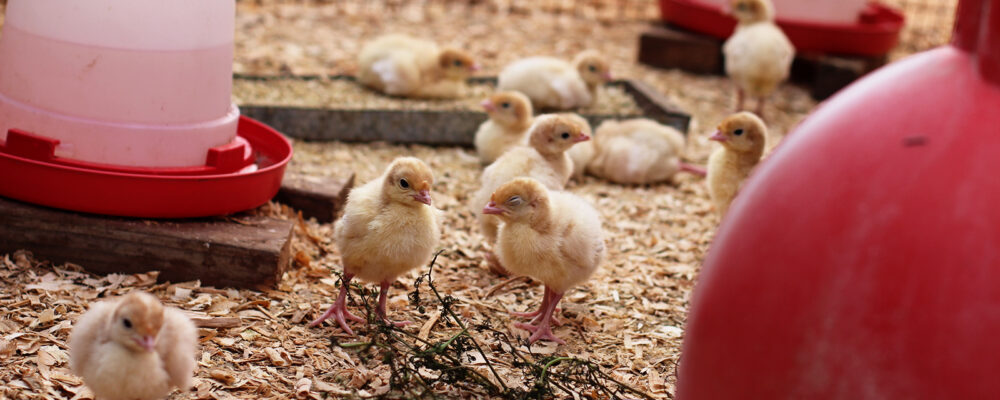
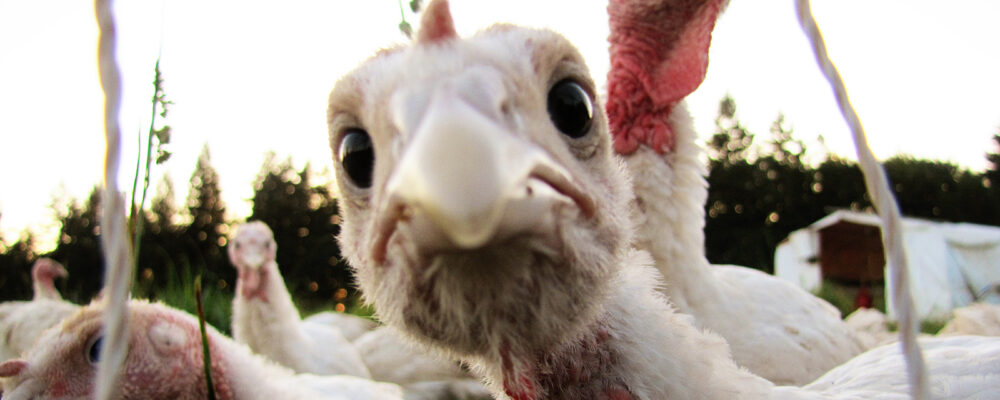
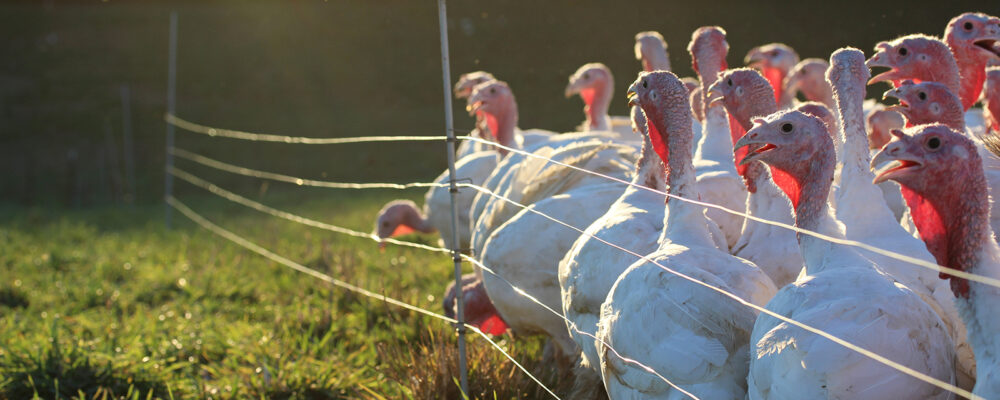
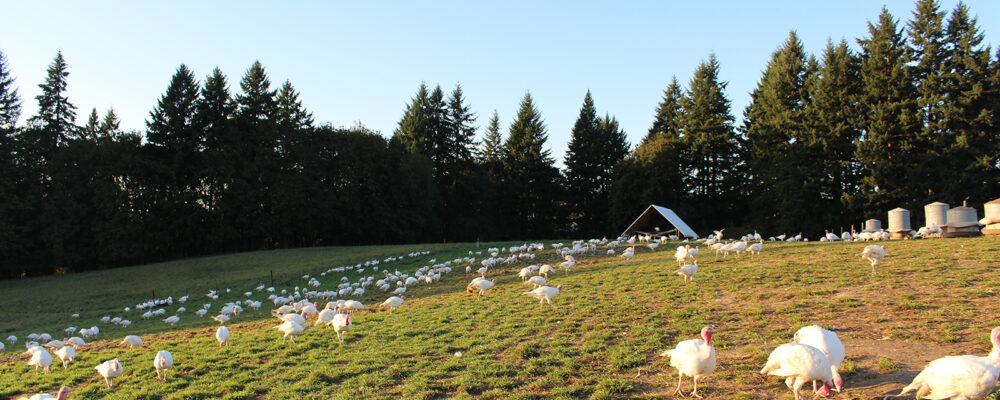
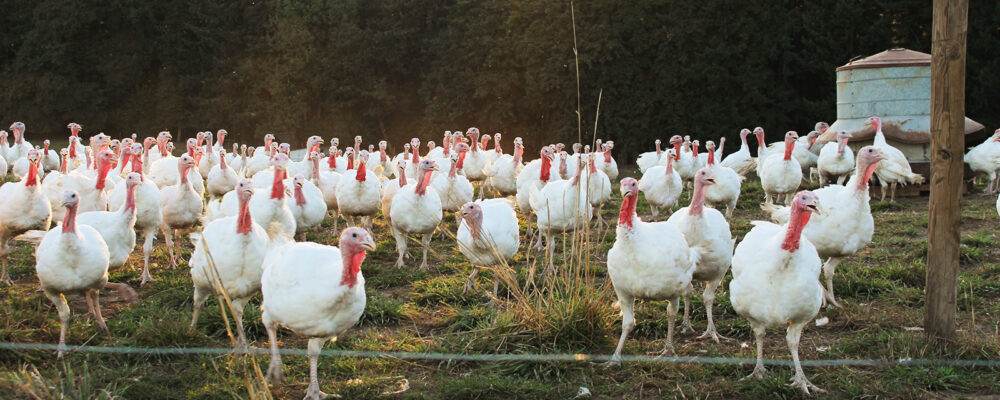
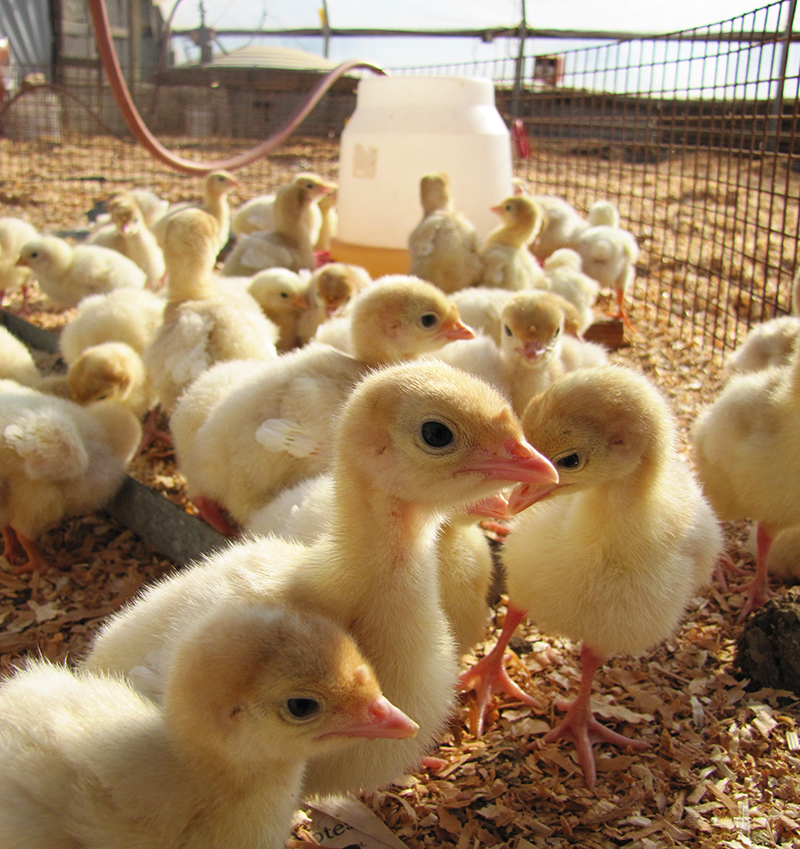
When they are mature enough, we move the turkeys fully onto pasture. Here is where life as ‘pasture raised’ begins. The birds have mobile shelters with feed, water and plenty of shade that are moved weekly. Turkeys wander quite far during the day but stick close to their shelter at night. Moving their shelter spreads out their incredible fertilizer, builds up the soil and continues the growth cycle of our lush pastures which bring rich nutrients up from the soil for the birds. The birds actually help with a process called Carbon Sequestration, a big word for using the life cycle of living plants to pull carbon out of the atmosphere and back into the soil; it’s called Regenerative Agriculture. This model allows the birds to graze on grasses, forage crops and crop residue (grain & organic vegetables), while sampling an array of insects and doing their part in our Regenerative System.
Life on the pasture isn’t all roses however; it’s tough chasing grasshoppers uphill both ways. Rain is wet and it’s cold at night during fall here in Oregon, but this lifestyle is what imparts fantastic flavor to the meat. That being said, we raise our birds seasonally during our warmest months when turkeys thrive best outdoors and the forage is at its freshest. We process them in early fall when the rains usually arrive and the days get short and stay cool. This is also when grass growth slows and the birds’ uptake of nutrients reduces. We raise several batches and stagger processing times to meet various target sizes from as small as 10 pound holiday birds to the challenging 50 pound birds we raise for cut up.
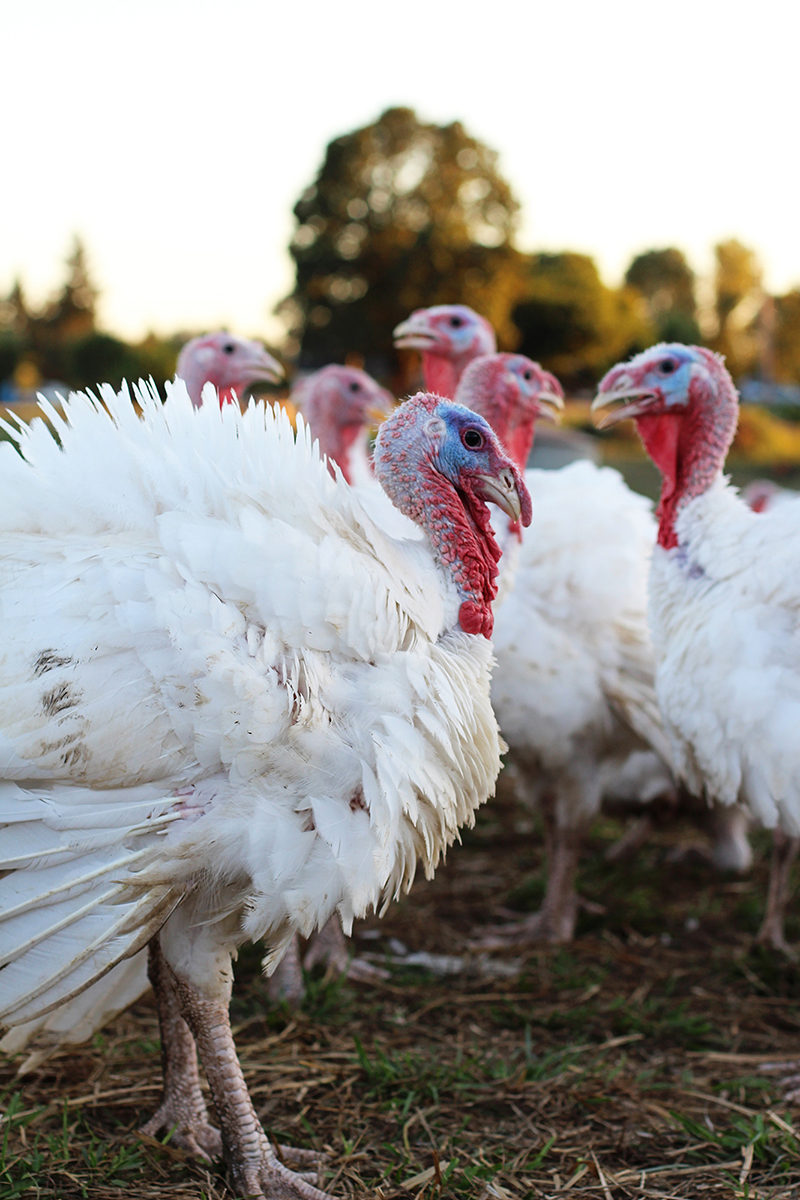
It all begins when baby poults arrive on the farm by day three. For the first two weeks they need an area that is 90°- 110° so they have a place to warm up after eating, drinking and exploring their surroundings. We use propane brooder stoves to provide ideal warmth mimicking how a hen ‘broods’ her babies under her wings. Brooding is the most important step with all poultry because it establishes their health and heartiness and sets them up to handle life on the pasture. Turkeys need extra care as they are extremely sensitive to drafts and other environmental factors and need help finding food and water the first few days. Through this process of watchful attentiveness, they bond to their caregivers and are very curious and friendly.
Once they are feathered out and familiar with their surroundings, we can start to expand the space that they roam in and turn down heater temps. By about week five, if the weather is pleasant, we can begin introducing them to the outdoor areas surrounding the safety of the brooder to dust bathe and sun themselves as they acclimate to the outdoors.
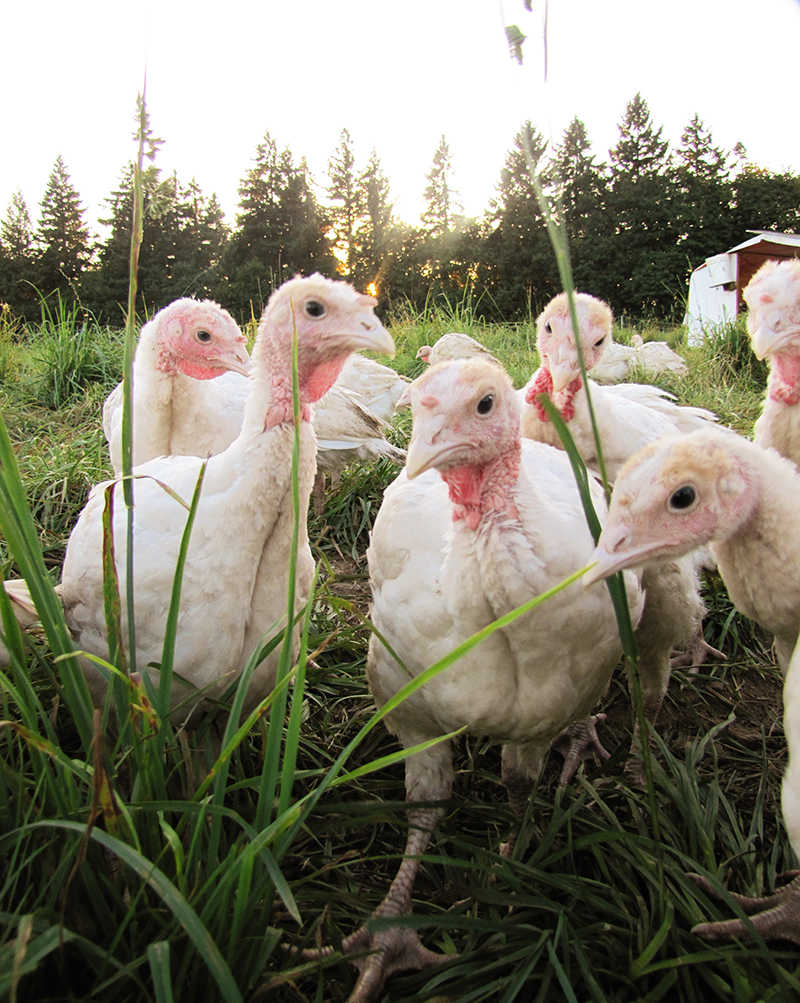
While organic is all about the DNA of the organisms consumed by an animal, pasture-raised is all about their lifestyle–the type and variety of vegetation they consume, the amount of time they spend out of doors, the quality of their environment, the extent of their roaming area, and the amount of new forage they have access to. All of this impacts the quality of the meat.
Pasture-raised turkey is rich in flavor and nutrients. All the exercise and clean living produces a lean, flavorful turkey that is tender, juicy, all natural, and antibiotic free. Our small batches are hand-processed, water chilled, and then frozen for the holidays. We never put in any additives.
Grass is not fatty. Eating grass from pasture also naturally monitors eating since the birds can’t eat beyond what is there. Because of this, and because grazing requires the animal to move, pastured meats are lower in fat than their confinement equivalents. They are also richer in Omega-3s, CLA, and Vitamin E, while decreasing pro-inflammatory Omega-6 fatty acids. Combine this with turkey’s naturally lean profile and availability in both cuts and ground, and you have a protein that can’t be beat.
Our methods produce clean, wholesome poultry that is flavorful, juicy, tender and nutrient dense with no fillers, additives, flavorings, or added water and always antibiotic free. Our ground turkey is not comprised of processing excess; it is made of whole muscle cuts. With our pasture raised method we don’t need to tweak the meat, it is fantastic just as it is.
Some people say the pasture method is inefficient. There is some truth in this because in confinement, commercial birds gain twice as fast at a quarter of the cost because their movement is restricted. But this fast growth comes at a cost to bird health, animal waste, air quality, working conditions and of course the nutrition and flavor of the meat. Our slow growth approach lets birds grow out to full flavor and even has marbling in the muscle. Grazing on grasses extracts nutrients from the soil and makes our poultry healthier for you while the low-stress lifestyle keeps it tender and juicy. Pasture raised turkey is a healthy alternative both for the consumer and the environment. More and more customers are turning to our turkey as an alternative to beef and pork.
Copyright
No products in the cart.
